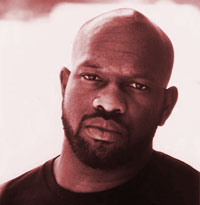5 Reasons Why I’m Rooting For Alvin Greene, and Why You Should Too
by Bakari Kitwana
 Since the news broke that Alvin Greene won the South Carolina Democratic Party Primary Election for US Senate, countless media and political elites, have filled several rounds of the news cycle looking down their noses at the unlikely winner. But more important than questioning where he got the $10,400 filing fee and feigning outrage in response to the obscenity charge, those who claim to love democracy should be asking this: “why are freedom-loving political insiders asking Greene to step aside?”
Since the news broke that Alvin Greene won the South Carolina Democratic Party Primary Election for US Senate, countless media and political elites, have filled several rounds of the news cycle looking down their noses at the unlikely winner. But more important than questioning where he got the $10,400 filing fee and feigning outrage in response to the obscenity charge, those who claim to love democracy should be asking this: “why are freedom-loving political insiders asking Greene to step aside?”
The same folks leading the charge against Greene, in part suggesting that he’s not smart enough to have really won, are the same public servants unable to protect us from banks smart enough to rip us off, but too dumb to fail, and oversized multinational corporations smart enough to drill, but clueless about how to stop the greatest oil spill in American history.
So until said elected officials have figured out a solution to these pressing issues, alongside the unemployment crisis, the budget crises, and recurring voting irregularities in national elections that nurture a climate for more of the same, I’m rooting for Alvin Greene.
Here are five reasons why:
First, if Alvin Greene is the legitimate winner, and I think politicians should find that out with a fair investigation before asking him to step aside (as Congressman James Clyburn and Democratic Party State leader Carol Fowler have done), his win reinforces the notion that grassroots everyday people can still win elections in America–that the country, imagine this, still actually belongs to the people. Political elites reveal how far removed they are from this idea when central to their criticism of Greene is the notion that Senate primary wins are impossible without big bucks and establishment support.
I’m also rooting for Alvin Greene because he’s an underdog, the quintessential outsider, so much so, his own party claims they never heard of him. That plus the fact that any non-millionaire deserves our support when he proves he can ruffle the feathers of the mainstream political establishment–those same politicians who get sent to Washington to represent the interest of the people back at home, but fail to support the majority will on pressing issues of the day.
Third, Green deserves our support because he is a candidate who went for broke and did the unthinkable: he put his money where his mouth is. If indeed his filing fee was his own money–which is as plausible to me as his win–then it’s a compelling story about the will of everyday people in search of democracy. This is the type of inspirational narrative all Americans should be embracing–not imaginary populous movements that run politically connected candidates (Rand Paul are u listening?) and pass them off as a revolution.
Greene wants to do something to save the country sans name-calling, racial slurs or spitting on politicians he disagrees with. Instead, the 32-year-old college grad truly believes in public service–if his military record is any indication.
Which leads me to my final two points: Greene’s a military veteran and a post baby-boomer, two groups underrepresented in the Senate. Sure, Washington insiders spend a lot of time giving lip service to the troops when it’s politically expedient. However, when a 13-year military veteran runs for office, these “support the troops” cheerleaders are focused on discrediting him.
According to the Department of Defense, over 75 percent of the armed forces is comprised of Americans under 30 years old. Likewise, young voters 18-29 years old in the last three national elections have been steadily increasing their engagement. It’s time their numbers are more significantly represented in Washington.
It may be revealed in the days ahead that Alvin Greene’s win was no win at all. If so, the culprit will likely be something far more plausible than a “Republican plant.” Although an electronic voting machine glitch, diabolical voting machine tampering, or massive crossover voting lead my list, I’m hoping that won’t be the case.
But whether Alvin Greene is manufactured, an accident or for real, those crying foul should see his entry on the political scene as an opportunity to re-evaluate their commitment to the nation’s ideals–rather than to continue to dismantle them.
Bakari Kitwana is senior media fellow at the Harvard Law based think tank The Jamestown Project and the author of the forthcoming Hip-Hop Activism in the Obama Era (Third World Press, 2010).


